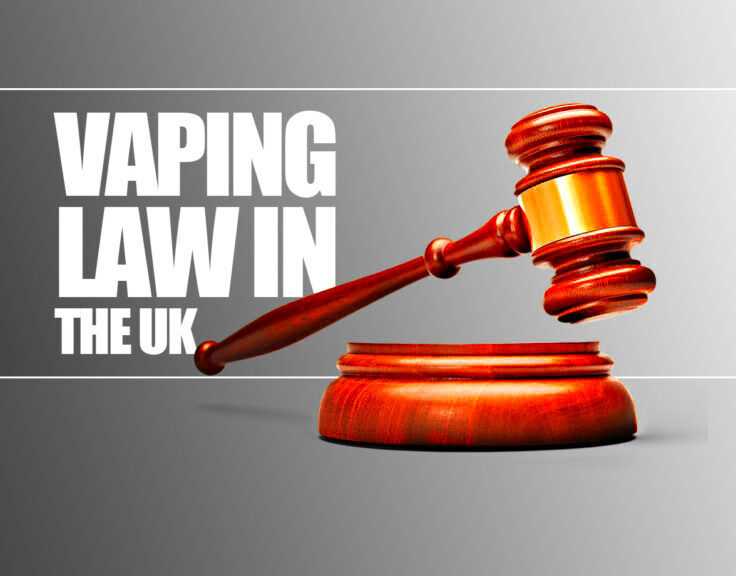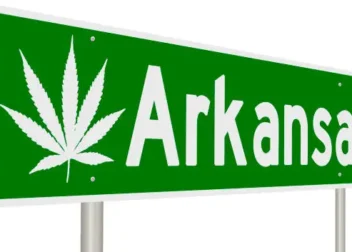Vape Sales Law Revisions and Compliance in Arkansas
In recent years, vape sales laws in Arkansas have evolved significantly. These laws aim to regulate the sale and distribution of vaping products to ensure consumer safety, particularly for minors. Understanding these regulations is essential for both retailers and consumers. In this post, we will explore the latest revisions to the vape sales laws in Arkansas and what they mean for everyone involved.
Overview of Recent Revisions to Vape Sales Laws
Arkansas has made several revisions to its vape sales laws to address public health concerns and the growing popularity of vaping among young people. Here are some key changes:
- Minimum Age Requirement: The legal age to purchase vaping products has been raised to 21, aligning with federal regulations.
- Flavor Restrictions: Certain flavored vaping products have been banned to reduce their appeal to minors.
- Retail Licensing: All retailers must obtain a specific license to sell vaping products, ensuring compliance with state laws.
- Advertising Restrictions: Stricter guidelines have been implemented for advertising vaping products, especially regarding targeting minors.
- Health Warnings: Mandatory health warnings on packaging and advertisements are now required to inform consumers of potential risks.
These revisions reflect a proactive approach by lawmakers to address the public health implications associated with vaping.
Key Compliance Requirements for Vape Retailers
For retailers selling vaping products, compliance with the new laws is crucial to avoid penalties and ensure consumer safety. Here are the key compliance requirements:
- Obtain Necessary Licenses: Retailers must secure a license specifically for selling vaping products. This includes completing an application and paying the required fees.
- Age Verification: Implement a robust age verification process at the point of sale to ensure customers are at least 21 years old.
- Product Labeling: Ensure that all products are labeled with appropriate health warnings and ingredients, adhering to state regulations.
- Training Employees: Train employees on the laws and regulations regarding vape sales, including how to verify customer age and handle products.
- Inventory Management: Maintain accurate records of vape products sold, including the source and type of products, for regulatory inspections.
Staying compliant with these requirements not only helps retailers avoid legal issues but also promotes a responsible vaping culture.
Impact of Revisions on Vape Consumers
The recent revisions to vape sales laws in Arkansas have a significant impact on consumers, particularly on how they access and use vaping products. While these changes aim to protect public health, they also alter the vaping landscape. Here’s how:
- Access to Products: With the increase in the minimum purchase age to 21, younger consumers may find it harder to access vaping products. This change could lead to a decrease in underage vaping, which is a positive public health outcome.
- Flavor Availability: The ban on certain flavors may limit options for adult consumers who enjoy flavored products. Many vapers appreciate these flavors for a more enjoyable experience, and the restrictions might push some to seek products from unregulated sources.
- Increased Prices: The additional licensing requirements for retailers could lead to higher prices for consumers. Retailers may pass on these costs to their customers, affecting affordability.
- Health Awareness: With mandatory health warnings, consumers are more informed about the risks associated with vaping. This awareness can influence decisions and encourage responsible usage.
- Compliance with Laws: Consumers need to understand their rights and responsibilities under these new laws. Being informed can help them make better choices and avoid potential legal issues.
Overall, while the revisions aim to enhance consumer safety, they may also present challenges for those who use vaping products.
Enforcement Measures for Non-Compliance
Enforcement of vape sales laws is crucial to ensure compliance among retailers and protect consumers. Arkansas has implemented several measures to address non-compliance:
- Inspections: State officials will conduct regular inspections of vape retailers to ensure adherence to licensing, age verification, and product labeling laws.
- Penalties for Violations: Retailers found in violation of the laws may face fines, suspension, or revocation of their licenses. Penalties can vary based on the severity of the infraction.
- Consumer Complaints: Consumers can report suspected violations to state authorities. This community involvement helps in monitoring compliance and holding retailers accountable.
- Training Programs: Arkansas may offer training programs for retailers to help them understand the laws and avoid penalties. These programs aim to foster compliance and promote responsible selling practices.
- Public Awareness Campaigns: The state may run campaigns to educate the public about their rights and the importance of reporting violations, ensuring a collective effort in enforcement.
Through these enforcement measures, Arkansas aims to create a safer vaping environment for everyone.
Resources for Vape Retailers and Consumers
Staying informed about vape sales laws is essential for both retailers and consumers. Fortunately, there are numerous resources available to help navigate these changes:
- State Regulatory Websites: Visit the Arkansas Department of Health website for the latest information on vape sales laws, compliance guidelines, and health resources.
- Industry Associations: Organizations like the Vapor Technology Association provide updates on legislation, best practices, and advocacy for the vaping industry.
- Training Workshops: Retailers can attend workshops and seminars focused on compliance training. These sessions often cover age verification techniques and responsible sales practices.
- Consumer Education Programs: Various public health organizations offer educational materials about the risks of vaping and how to use products responsibly.
- Hotlines and Support Services: Consumers and retailers can reach out to local health departments or legal aid organizations for assistance with questions or concerns regarding vape laws.
By utilizing these resources, both retailers and consumers can ensure they are informed and compliant with the latest vape sales laws in Arkansas.
Future Changes to Vape Sales Legislation
As vaping continues to evolve, so will the laws governing its sale and use. Future changes to vape sales legislation in Arkansas will likely reflect ongoing public health concerns, market trends, and federal regulations. Here are some potential developments to watch for:
- Further Age Restrictions: Given the focus on reducing underage vaping, lawmakers may consider raising the minimum purchase age even further or implementing stricter penalties for retailers who sell to minors.
- Expanded Flavor Bans: As research continues to emerge regarding the appeal of flavored products to youth, we may see an expansion of bans on specific flavors or even a broader prohibition on flavored vaping products.
- Tax Increases: To deter vaping, lawmakers could introduce higher taxes on vaping products, similar to existing taxes on tobacco. This could impact prices and consumer accessibility.
- Increased Labeling Requirements: Future legislation may mandate more detailed product labeling, including specific health risks associated with each product to enhance consumer awareness.
- Online Sales Regulations: With the rise of online purchasing, new rules may be established to regulate the sale of vaping products over the internet, ensuring that age verification is effectively enforced.
Staying informed about these potential changes is crucial for retailers and consumers alike, as they can have significant implications for the vaping landscape in Arkansas.
Frequently Asked Questions
As vape sales laws in Arkansas evolve, many questions arise among consumers and retailers. Here are some of the most frequently asked questions:
- What is the legal age to purchase vaping products in Arkansas?
The legal age is currently 21, in line with federal regulations. - Are all flavored vaping products banned?
No, only certain flavors have been banned. It’s essential to check the specific regulations for any updates. - What happens if a retailer is caught selling to minors?
Retailers can face fines, license suspension, or even revocation depending on the severity of the violation. - How can consumers report violations?
Consumers can report suspected violations to the Arkansas Department of Health or local authorities. - Where can I find resources for compliance?
Retailers can visit state regulatory websites, industry associations, and public health organizations for guidance and resources.
These FAQs help clarify common concerns and provide useful information for those navigating the vaping laws in Arkansas.
Conclusion on Vape Sales Law Revisions in Arkansas
The revisions to vape sales laws in Arkansas mark a significant shift in the regulatory landscape aimed at protecting public health and reducing youth access to vaping products. While these changes present challenges, they also offer opportunities for a more responsible vaping culture.
For retailers, compliance with the new laws is essential to avoid penalties and maintain a positive reputation. Consumers, on the other hand, should stay informed about their rights and the available products to make responsible choices.
As the vaping landscape continues to evolve, ongoing communication between lawmakers, retailers, and consumers will be crucial in ensuring that the regulations effectively balance public health needs with individual rights. Staying informed and proactive is the key to navigating this dynamic environment.


